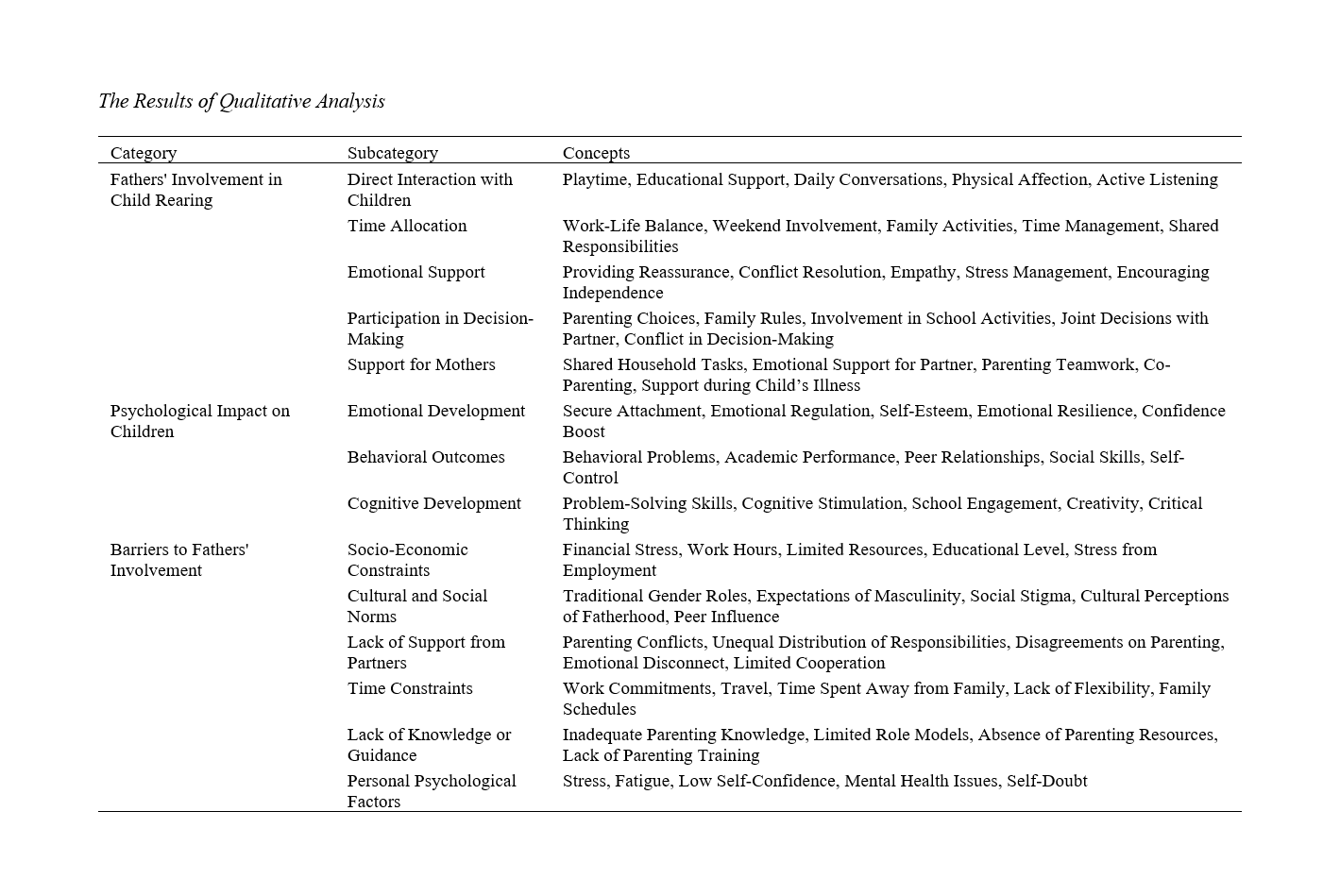Fathers' Involvement in Child Rearing: Psychological Outcomes for Children
Keywords:
Paternal involvement, mental health outcomes, child development, father-child relationship, emotional well-being, qualitative research, paternal mental healthAbstract
This study aims to explore the psychological outcomes of fathers' involvement in child-rearing and to assess how various forms of paternal engagement influence children's mental health and emotional well-being in Tehran. A qualitative research design was employed, involving 24 fathers from Tehran who participated in semi-structured interviews. The interviews focused on fathers' experiences of their involvement in child-rearing, their perceptions of the impact of their engagement on their children's mental health, and their own psychological well-being. Data were analyzed using NVivo software, with a focus on thematic analysis and theoretical saturation. The findings revealed that active paternal involvement, particularly emotional engagement, was positively associated with better mental health outcomes for children, including reduced levels of anxiety, depression, and behavioral problems. Fathers' mental health status was found to significantly impact the emotional and behavioral well-being of their children, with those experiencing higher levels of stress, anxiety, or depression having children who displayed greater emotional difficulties. Additionally, the quality of father-child interactions—marked by emotional support and communication—was identified as a key factor in fostering children's emotional resilience. Furthermore, maternal support of paternal involvement was also found to play a critical role in enhancing the positive effects of fathers' engagement. The study concludes that fathers' emotional and psychological involvement in child-rearing significantly influences children's mental health outcomes, highlighting the importance of addressing both paternal mental health and encouraging fathers' active participation. Cultural and societal support for paternal involvement is essential to optimizing child development and emotional well-being.
Downloads

Downloads
Additional Files
Published
Submitted
Revised
Accepted
Issue
Section
Categories
License
Copyright (c) 2025 Mohammad Khademi, Soosan Yazdanshenas (Author); Maryam Yavari Kermani (Corresponding Author)

This work is licensed under a Creative Commons Attribution-NonCommercial 4.0 International License.







